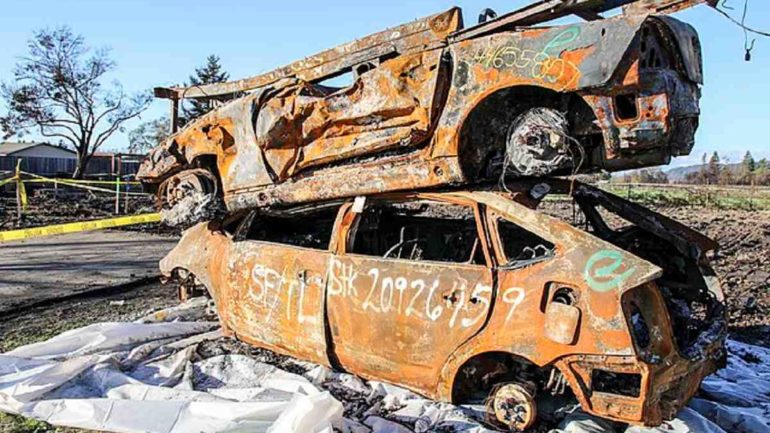ART & DESIGN
U.S. Army Corps of Engineers contractors remove debris in Coffey Park neighborhood within Santa Rosa, California, as part of the mission to oversee the clearing of residential properties destroyed by wildfires. One example of the devastating wildfire destruction photographs giving environmentalists a course for concern. Photo: Carol E. Vernon.
Wildfires destroy thousands of structures each year. These devastating wildfire destruction Photographs are reminders of climate change and that the human race could be on the verge of extinction.
BY KAZAD
There are wildfires everywhere. This year, wildfires have caused extensive destruction around the world. Almost the whole world is experiencing wildfire outbreaks. In fact, wildfires are have become a global annual trend. Perhaps, what is different about this year’s wildfires is that they are more intense and last longer. In addition to destroying houses and businesses, many people have also been killed or displaced. The enormity of the wildfires has left economists struggling to evaluate the economic impact of the destruction caused by the wildlife.
Gory Stories from Devastating Wildfire Destruction Photographs
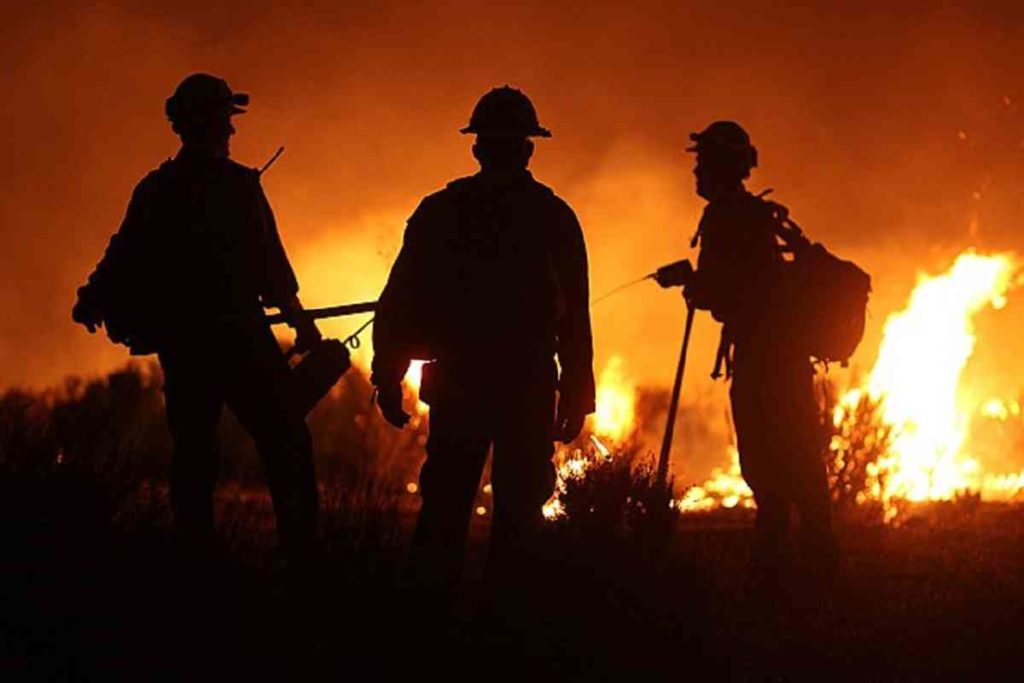
High Temperatures and Draught
Scientists have proffered reasons for the raging wildfires across the globe. One is the poor management of forests. However, the most important cause of wildfires is global warming caused by climate change. In the past few years, the rise in temperature has led to drought in many places around the world. California, for example, has been experiencing severe drought for almost two decades.
Monstrous Wildfires
The lack of rain and increase in temperature has left forests across California dry and more susceptible to fires. Through the years, wildfire outbreaks in California have increased and become more destructive. This year is particularly devastating because the wildfires are bigger and more destructive than other years. So intense are the California wildfires that scientists are describing them as monstrous.
But California is just one example; the increase in temperature is now a major issue of conversation even in some of the coldest places around the globe. Yakutsk, in Russian Siberia, was once known as one of the coldest places on the planet. Yakutsk was so cold that inhabitants had to dress in multiple layers to avoid frostbite. A simple exposure in the winter months could lead to hypertonia and death. But that is changing: Temperatures are rising, and there are now regular wildfire outbreaks in the coldest place in the world.
The United Nations Climate Panel and scientists have identified climate change caused by human activities as a major reason for all the wildfires burning across the globe. The panel in its report noted that the greenhouse gases in the atmosphere were high enough to guarantee climate disruption for decades, if not centuries. As a result, the panel issued dire warnings that if nothing was done soon to correct course, the human race could be on the verge of extinction. The burning of fossil fuels and forest destruction has to stop, the panel intimated.
How Destructive are Wildfires?
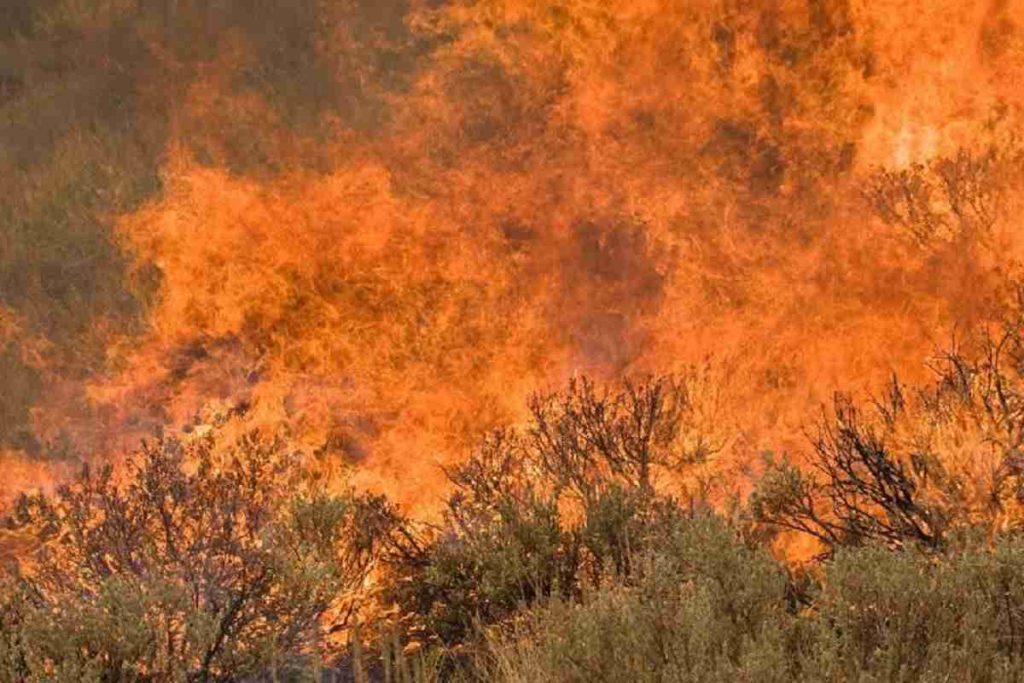
Wildfires are extremely destructive. Every year, they destroy thousands of structures and kill many people. California wildfires are important examples to show the devastating effects of wildfires on humans and properties. Records show that the structural losses are high in California. The state has eight of the top 10 most destructive wildfires in the United States, which have resulted in an extreme loss of lives and properties. In 2018, for instance, the Woolsey and Carr fires destroyed more than 22,867 structures. There were also more than 88 fatalities.
On the heels of California is Texas, where more structures have been lost than any other state. Indications are that more than 5200 structures have been destroyed by wildfires since 2005. The majority of reported structural losses occurred during extreme conditions in 2011. The wildfires at the Bastrop County Complex, for instance, destroyed 1,709 structures and killed four people.
The Wildfire Map is Global
There are wildfires in almost every part of the world. From the United States to Canada, Greece, Russia, Australia, Italy, Turkey, and Algeria, wildfires are destroying life as we know it. The Australia wildfires from 2019 through 2020 remain in many minds. The historic wildfire destroyed more than 42 thousand acres of land and had a massive impact on the climate. It remains one of the worst wildfire disasters in modern history.
Wildfires have become rampant in recent years across the United States. From Oregon to Washington and Colorado, wildfires have destroyed many structures. Wildfires have become even more intense recently. In 2020, for instance, wildfires destroyed over 3,800 structures in Oregon, far more than the recorded 532 structures from 2005 to 2009.
There are now wildfires almost everywhere in the United States. Nearly every state now has some sort of wildfire, some of which have become more destructive. More than 89,000 structures have been destroyed by wildfires since 2005 in the United States. There have also been untold numbers of fatalities, evacuations, and personal losses.
Here are some places around the world where wildfires have caused devastating destruction this year:
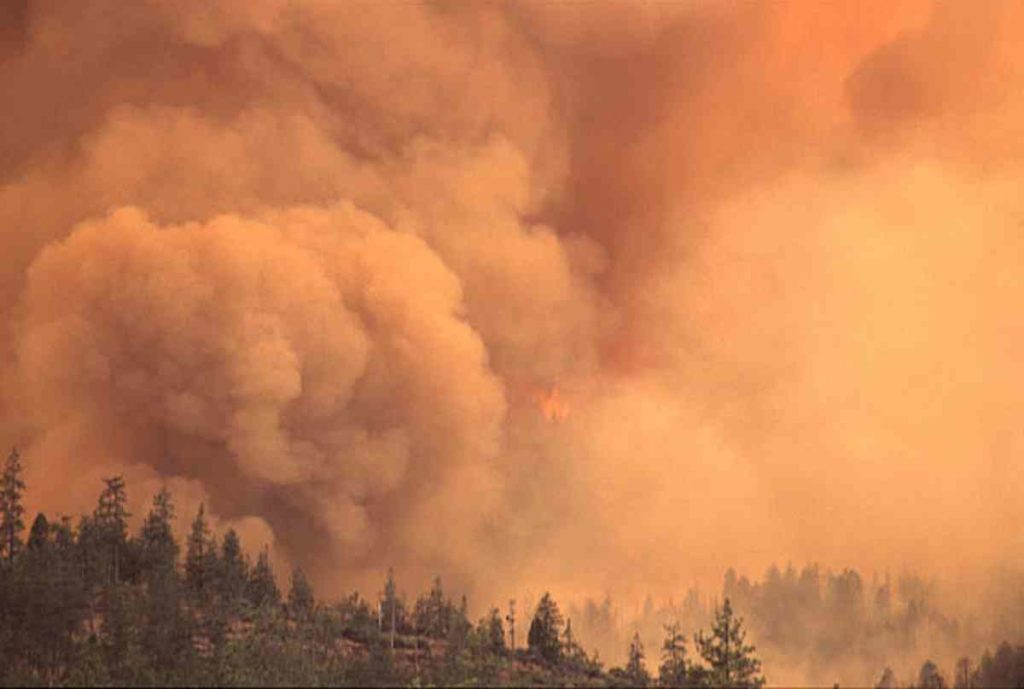
Devastating Wildfire Destruction Photographs of California Wildfires
In California, the Dixie wildfires have destroyed more than 500,000 acres and it continues to burn. This is the second-largest fire in California history. The largest fire was in August 2020 and it destroyed more than one million acres. The struggle to contain the Dixie wildfire continues as firefighters battle the flagrant wind that continues to make their jobs more difficult. Crews battling the fire have only been able to contain the fire by 30 percent.
Already, the Dixie fire has destroyed more than 1,045 buildings and damaged 69 more. This is a big and unrelenting fire that has destroyed most of Greenville before burning through the Canyon dam. Almost 15,000 homes and businesses are still under threat as the fire spreads.
Protecting General Sherman and Other Sequoia Trees
But the Dixie fire is just one of the wildfires ravaging the United States. The Bootleg fire in Oregon has touched over 413.765 acres. While the Richard Spring fire in Montana has claimed an estimated 150,000 acres, it continues to burn uncontained. The Snake River complex fire in Idaho scorched 109,000 acres. Although contained, the Shovel Creek fire, also in Idaho, touched 109, 422 acres.
Wildfire firefighters are desperate and doing their best to save lives, properties, and important trees. In Sierra Nevada, firefighters wrapped the base of the world’s largest tree, the colossal General Sherman, in a fire-resistant blanket to save it from being killed by wildfire. The General Sherman Tree is the largest in the world by volume. It is 52,508 cubic feet (1,487 cubic meters). The tree is 275 feet (84 meters) high and has a circumference of 103 feet (31 meters) at ground level, according to the National Park Service.
Firefighters are also wrapping other sequoias in aluminum wrappers to protect the famous grove of gigantic old sequoias from wildfires. According to federal authorities, it is imperative to forestall what happened last year when wildfires killed thousands of sequoias, some of which were as tall as high-rises and thousands of years old.
In addition to the trees, firefighters have also wrapped the Giant Forest Museum and other buildings around to protect them from intense flames. Federal officials explained they have been using the aluminum wrapping for several years. The wrapper can withstand intense heat for a short time.
Siberia Wildfires
It is not just in the United States that wildfires are running wild. In Russia, firefighters have been battling wildfires in Siberia. Vladimir Putin described the wildfires spreading across Northeastern Siberia as unprecedented and a threat to lives and property. As fire burns across 3.2 million acres in Yukutia, a state of emergency was put in place to get more resources to help fight the fire. So big are the wildfires in Yukutia that the impact can be felt in Alaska as strong winds fanned the unrelenting flames. Recent figures show that more than 6.5 million acres have been consumed by the wildfires. Yukutia was once one of the coldest places in the world. Sadly, high temperatures are changing all that.
Canada Wildfires
In the British Columbia province of Canada, authorities declared a state of emergency at the height of summer because of wildfires spreading out of control across the country. More than 300 fires were declared in the space of 3 weeks and firefighters did their best to put them out. Using water bombs, horses, and digging firebreaks, they did everything to stop the infernos from destroying everything.
Greece Wildfires
Just like many other parts of the world, Greece is also experiencing some of the wildest wildfires. Over 580 firefighters took up the challenge of putting out the recent wildfires that sent people running helter-skelter. They were later joined by colleagues from France, Britain, Germany, and the Czech Republic to battle blazes in Gortnia and Olypia.
In the Greek Island of Evia, wildfires led to the evacuation of residents and tourists. Thousands were evacuated by ferry and fishing boats to avoid the catastrophe. The evacuation order came from the mainland north of the capital, Athens. More than 2,600 have been evacuated by the sea from Evia. Evia is the second-largest Greek island in Crete. Evia is a popular destination for domestic tourism.
In addition to Evia, wildfires are also burning in Greece’s southern Peloponnese region where hundreds of businesses and homes have been destroyed or damaged. Power cuts have also affected at least 17,000 households. For a country that depends on tourism, the economic impact will be immeasurable after the fire. Many tourists are already thinking of canceling their trips to avoid the uncontrolled wildfire burning across Greece.
Although wildfires are regular occurrences in Greece during the summer, this one was unprecedented because of the prolonged heatwaves. Greek Prime Minister Kyriakos Mitsotakis described the wildfires as “a natural disaster of unprecedented dimension.” Greece has created a climate crisis ministry to study and prevent the next wildfire. Led by former European Union commissioner Christos Stylianides, the ministry will also address the impact of climate change.
Italy Wildfires
In southern Italy, wildfires were determined to destroy anything in their path. Aided by hot winds, the fires ravaged thousands of acres. The more than 40 degrees Celsius in southern Italy did not help matters, as firefighters quickly realized that putting out the fires was a daunting task. In Sicily and Calabria, firefighters used planes to fight the fire and save important cultural artifacts. “It was an uneven battle. We are losing our history, our identity is turning to ashes, our soul is burning,” wrote Giuseppe Falcomata, a local mayor in Calabria on his Facebook page. Several people died from the fire.
Algeria Wildfires Reveal Devastating Wildfire Destruction Photographs
Wildfires have relentlessly destroyed lives and property across the globe. Despite the well-funded firefighters in rich and advanced nations, wildfires have made catastrophic advances. The impact of wildfire on humans and properties is even worse in poor and developing nations. In Algeria, containing the wildfires that broke out was an odious task. In Tizi Ouzou, the largest district of the mountainous Kabylie region, houses were burned and residents fled to shelter in hotels and university accommodations in nearby towns.
To put out the ravaging wildfires that tore through the forested area in northern Algeria, the government deployed the military. In some areas, the responsibility of fighting the fires was in the hands of ragtag firefighters and villagers using branches to beat back wildfires in some areas. They chastised the government for a lack of support. More than 65 people lost their lives to the wildfires and 28 of them were soldiers. President Abdelmadjid Tebboune declared three days of mourning for those killed by the wildfire.
Turkey Wildfires
The battle to stop wildfires from destroying properties and lives across Turkey was a tug of war as more than 300 wildfires burned simultaneously. Tens of thousands of hectares of woodland were destroyed. Adding to the devastation is the flooding from a heavy rainfall that destroyed villages and left people without power on the northern coast of Turkey.
The Future
The spread of wildfires across the globe has left many people wondering what the future holds. Will there be more wildfires next year as temperatures continue to rise? Scientists think the answer is yes if humans continue in their destructive ways. To forestall activities that could lead to human extinction, countries are coming together to confront global warming and climate change. Some people are also deploying new strategies to prevent outbreaks of wildfires. One is the use of goats. The idea is to let goats feed on the vegetation before they become dry and fire hazards. An added advantage is that the waste produced by the goats will help fertilize the soil, leading to new green vegetation.
Devastating Wildfire Destruction Photographs
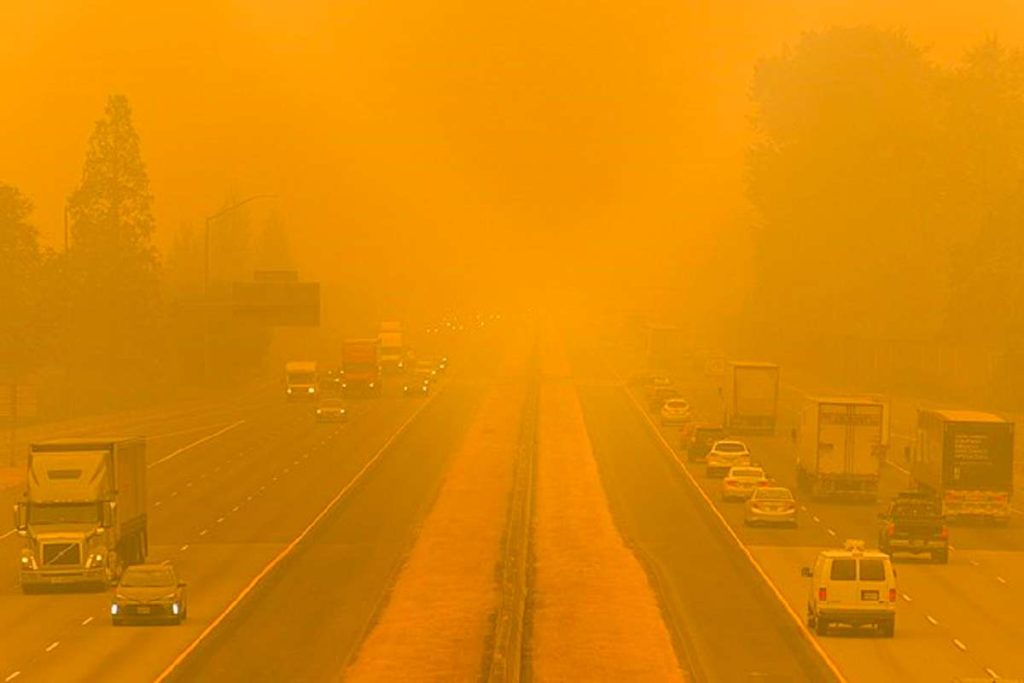
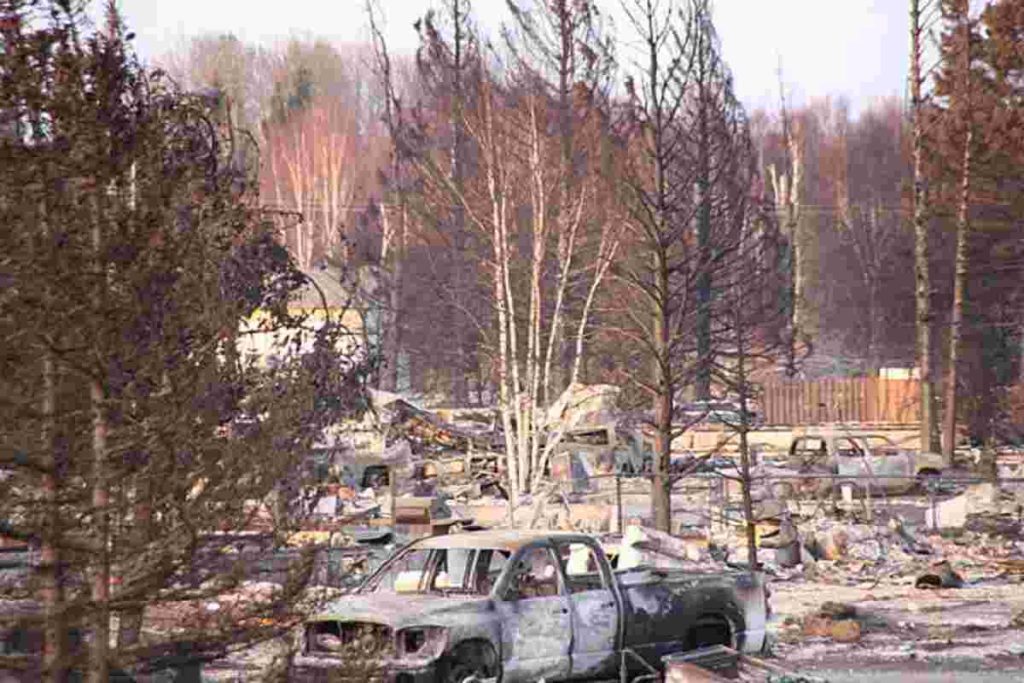
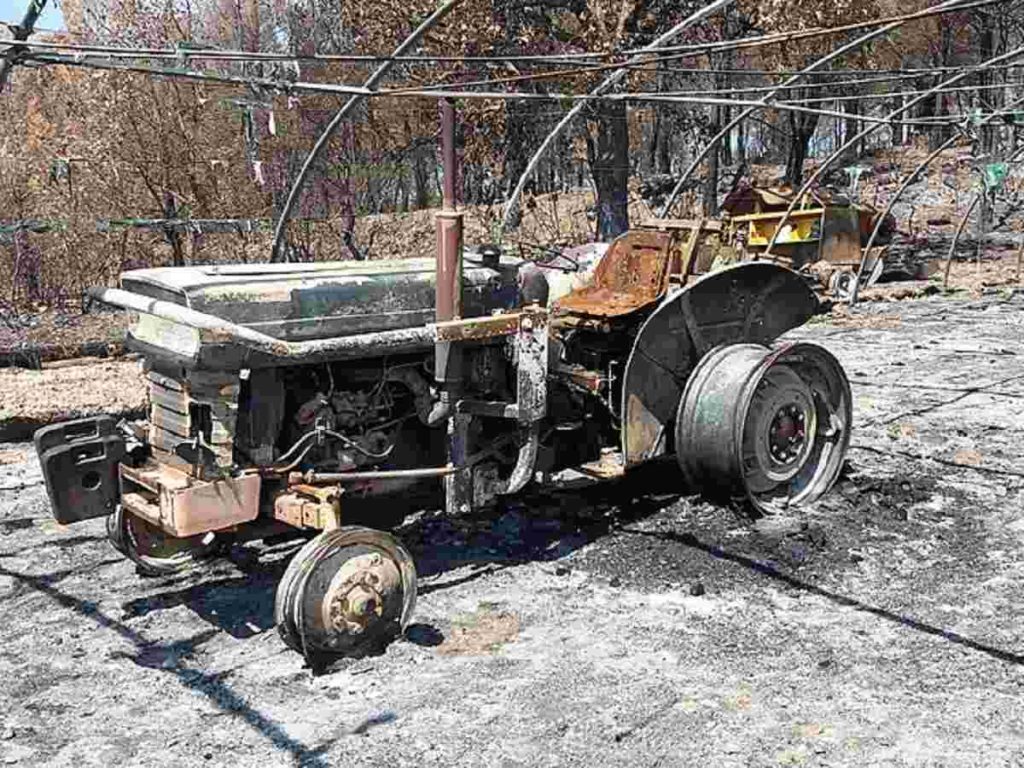
Photos: Creative Commons/ public domain.
